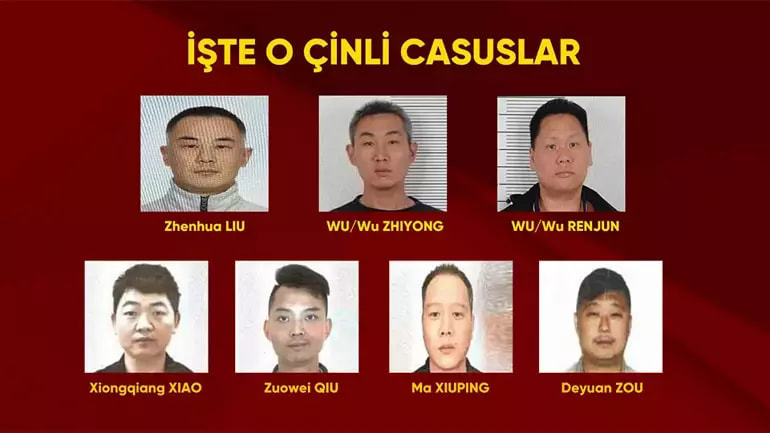
Turkish intelligence has dismantled what officials describe as the most advanced foreign espionage operation ever uncovered on its soil, a Chinese-run spy ring that used IMSI-catcher technology to monitor Uyghur dissidents and Turkish government officials in five major cities.
The operation, led by Turkey's National Intelligence Organization (MIT), culminated in the arrest of seven Chinese nationals caught using ghost base stations, mobile surveillance equipment that mimics real cell towers to intercept communication and location data from nearby phones. The suspects were apprehended in Istanbul and Izmir earlier this month after years of covert monitoring by Turkish authorities.
The leader of the cell, identified only by the initials Z.L., reportedly entered Turkey five years ago and laid the groundwork for the operation by setting up shell companies, including a logistics firm and an import-export business, to provide a cover for his activities. He also learned Turkish to better blend into the local environment and manage the network, which was both technically sophisticated and operationally autonomous.
CNN Türk's investigation, corroborated by MIT sources, revealed that the operation targeted members of Turkey's Uyghur diaspora, many of whom fled persecution in China, as well as Turkish public servants who were believed to be in contact with them. Surveillance extended to Istanbul, Izmir, Manisa, Balıkesir, and Bursa, with agents collecting sensitive information, including call logs, messages, contact lists, and GPS coordinates.
Turkey hosts one of the largest Uyghur communities outside China, many of whom have been outspoken against Beijing's policies in Xinjiang. Human rights groups have long accused China of waging a campaign of cultural genocide against Uyghurs, including mass surveillance, detention camps, and forced labor.
What made this operation stand out, according to Turkish authorities, was the deployment of actual intelligence tradecraft and technical assets usually reserved for state-level law enforcement. IMSI-catcher devices, which exploit the natural behavior of phones to connect to the strongest nearby signal, were brought into Turkey in a piecemeal fashion to avoid customs detection; antennas, batteries, and control modules were smuggled in separately by different couriers.
Photos released by Turkish security forces show the IMSI-catcher hardware mounted in inconspicuous vehicles. Operatives would park near targeted individuals and activate the devices, capturing their data within a 50-meter radius. Once collected, the information was transmitted to a handler in China, referred to by the operatives as the “big boss.”

CNN Türk
Among the arrested were individuals with minimal technical training, indicating a hierarchical structure where only a few were deeply embedded agents. For instance, one of the operatives, Z.Y.B., had no formal education beyond primary school and was tasked solely with transporting and powering surveillance equipment. Another, identified as W.R., claimed he was an elevator technician in China—likely a cover identity.

CNN Türk
Despite all seven suspects denying any connection to one another during interrogation, investigators found clear evidence of coordinated meetings and communications. Authorities say the ring's methodical planning and long-term presence mark a significant escalation compared to previous foreign espionage cases in Turkey, which often relied on simpler tactics like placing GPS trackers or hiring local detectives.
The operation contrasts sharply with past espionage activities attributed to Iranian or Israeli networks, which typically outsourced surveillance to private detectives. In this case, the Chinese team directly deployed state-grade surveillance hardware and managed their own logistics and funding, reportedly stealing from Turkish citizens' bank accounts to cover expenses.
To protect against IMSI-catcher surveillance, use secure communication apps with end-to-end encryption and tools that can detect cell-site simulators like EFF's Rayhunter.







Leave a Reply